Inverter generator is a newer and more advanced type of portable power generator that has become increasingly popular in recent years. Let’s take a closer look at the generator inverter technology and learn more about it, from how it works to what it can offer.
What Are Inverter Generators?
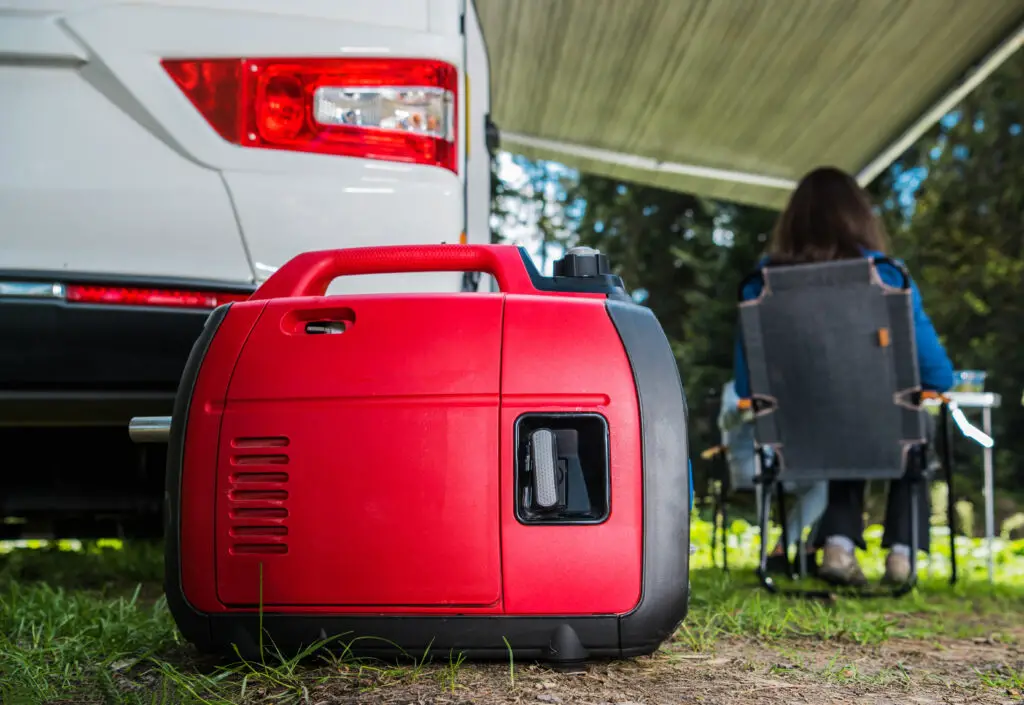
It is a portable generator that uses advanced electronics to convert AC power to DC power and then back to AC power, producing a high-quality electrical output.
The DC power is first generated by the alternator and then transformed to AC power through a microprocessor-controlled inverter. The microprocessor ensures that the AC power produced is consistent with frequency and voltage, eliminating power fluctuations and surges that can damage sensitive electronics.
How Does An Inverter Generator Work?
This electronic gadget works by using a combination of advanced electronics and an alternator to produce high-quality, stable power. The alternator has AC power, which is then rectified to DC power by a diode bridge.
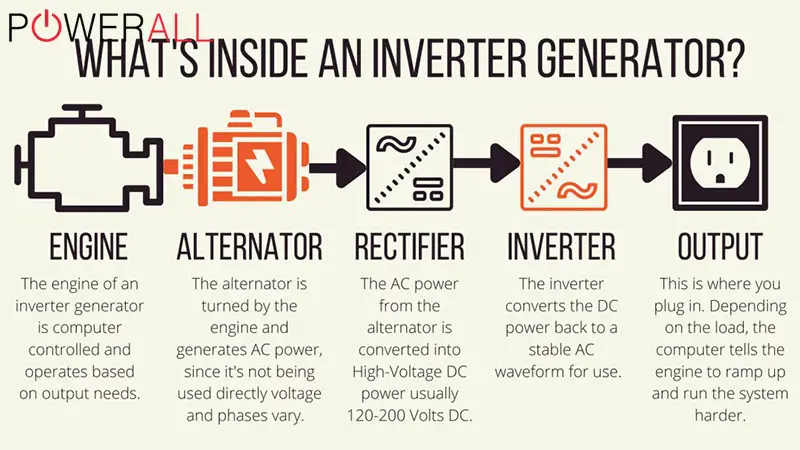
The DC power is then inverted back to AC power through a microprocessor-controlled inverter. The microprocessor adjusts the frequency and voltage of the AC power to produce a stable output that is suitable for sensitive electronics.
Inverter Generator Pros And Cons
Below are the pros and cons that the device will bring.
Pros
High-Quality, Stable Power: Inverter generators produce high-quality, clean power similar to the mechanical energy from a wall outlet. This makes them ideal for powering sensitive electronics such as laptops, smartphones, and televisions.
Fuel Efficiency: They are designed to be fuel-efficient, using advanced technology to manage the engine speed based on the power load required. This means they can run for longer periods on a single fuel tank, thereby more cost-effective in the long run.
Quiet Operation: This electric device can operate quietly, making it an ideal choice for camping, RVing, and other outdoor activities where noise can be a concern. They are often compared to the noise level of a normal conversation, making them much quieter than standard generators.
Portable: These are typically smaller and lighter than traditional ones, so they are more portable and easier to transport. They can be easily carried by one person and stored in small spaces.
Environmentally Friendly: They are more environmentally friendly than other models of generators because they produce fewer exhaust emissions and use less fuel.
Cons
Higher Cost: Inverter generators are more expensive compared to other types of generators due to their innovative technology and fuel efficiency.
Maintenance Requirements: They require more maintenance than traditional models due to their advanced electronics and fuel efficiency. They may require more frequent oil changes and air filter replacements.
Not Suitable For Heavy Loads: These items are unsuitable for powering heavy loads or large machinery owing to their limited power output. This may be a disadvantage for some users requiring a heavy-duty generator.
What Size Of Inverter Generator Should You Use?
Here are device ratings divided into four categories to help you better understand your options.
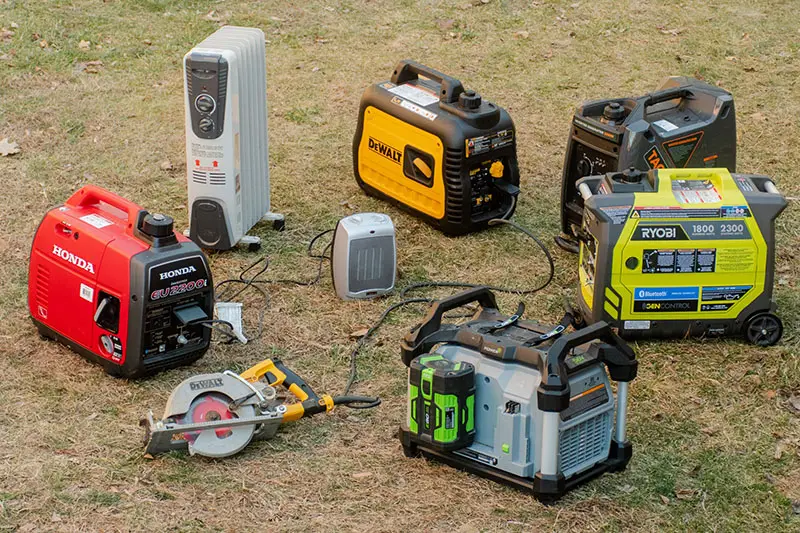
Large
In our ratings, the majority of large inverter generators weigh between 150 and 300 pounds. That’s sufficient to power your home but too big to bring to a tailgate party. They produce power of at least 5,000 watts (at 220 volts).
The device can be safely linked to your electrical system immediately via a manual transfer switch, which CR highly advises. This enables the generator to run complete circuits in your house rather than requiring you to connect individual equipment with extension cords.
Midsized
They are at least 80 pounds in weight and might have wheels. They generate between 2,500 and 5,000 watts but are incompatible with the suggested transfer switch connection to an electrical panel.
As an alternative, you put devices or household appliances straight into the item, which can be risky if you don’t follow specific safety precautions.
This size is ideal for recreational vehicle users. It is light enough to unload and carry to a safe distance from your RV before usage, yet it produces all the power you expect from plug-in appliances, such as a microwave or toaster.
Small
Products in this rating range provide 1,500–2,500 watts. That’s sufficient to provide a fridge, phone chargers, and lights with reliable backup power, but not many things else.
They cannot be used to power any equipment that doesn’t have a common two- or three-prong connection or to connect to an electronic circuit breaker control panel.
A lot of compact recreational inverter models have convenient elements like fuel-level gauges, and some have wheels. Yet, these devices are made to be handled with just one hand and often weigh from 50 to 60 pounds.
Compact
These items generate about 1,000 watts, which is adequate for camping or tailgating. These vehicles don’t have regular wheels or fuel gauges, which are convenient features. Although they range in weight from 30 to 40 pounds, they are made to be easily carried in one hand.
Differences Between Inverter Generator Vs Regular Generator
While both types provide power, there are several key differences between the two, such as electrical output, fuel economy, etc. Here are the key points that can help you determine the right type for your needs.
Power Output
Regular generators produce AC power that is not always stable, leading to fluctuations in voltage and frequency. In contrast, inverter generators use advanced electronics to offer cleaner AC power that is stable and consistent.
This is achieved by converting the AC to DC power and then back to AC power with a cleaner wave.
Fuel Efficiency
Inverter generators are highly fuel-efficient, using advanced electronics and an engine that adjusts and maintains a steady speed to match the required load.
This means they can generate the necessary power with less fuel consumption, resulting in longer run times on a single gas tank. On the other hand, regular ones are not as efficient and typically consume more fuel to produce the same amount of power.
Weight And Size
Inverter generators are designed to be compact and lightweight, making them highly portable and easy to transport. Meanwhile, regular generators are generally larger and heavier, with more robust components needed to produce quality power outputs.
Noise Level
Inverter generators are much quieter than regular generators. This is credited to their advanced electronics and engine design that gives off less noise during operation.
This renders them ideal for use in residential areas or other places where noise levels must be minimal. In contrast, conventional generators can be quite loud and may not be suitable for use in residential areas.
Cost
Generally, inverter generators are more expensive than standard ones due to their advanced electronics and fuel efficiency. However, they can also promise long-term cost savings through their fuel efficiency and reduced maintenance needs.
Traditional generators are typically less costly but may call for frequent maintenance and consume more fuel over time.
Frequently Asked Questions
Can You Use An Inverter Generator For A House?
Yes, you can use an inverter generator for a house, but it will depend on your power needs. Inverter generators are ideal for powering smaller electrical devices like laptops, smartphones, and small electrical appliances.
Yet, they may not be suited for powering larger appliances, such as refrigerators or air conditioners, unless you have a generator with a higher power output.
Is An Inverter Generator Better For Home Use?
Yes. An inverter generator can be better for home use in certain situations, particularly when you demand a portable and quiet power source for smaller electronic devices or appliances.
Still, a conventional generator may be a better choice if you need to power larger appliances or ask for a higher wattage output.
Can An Inverter Generator Run A Refrigerator?
Yes, an inverter generator can run a refrigerator, but it will depend on the generator’s power output and the refrigerator’s wattage requirements.
It is important to check the power requirements of your refrigerator and ensure that the device you choose has a sufficient power output to meet those needs.
The Bottom Line
You finally understand the generator inverter meaning. It is a versatile and efficient portable power source that can bring a reliable and stable power supply for a wide range of electronic devices.
Whether you’re looking for a convenient source of power or need a backup power supply for your home, this device can offer the performance and versatility you need.

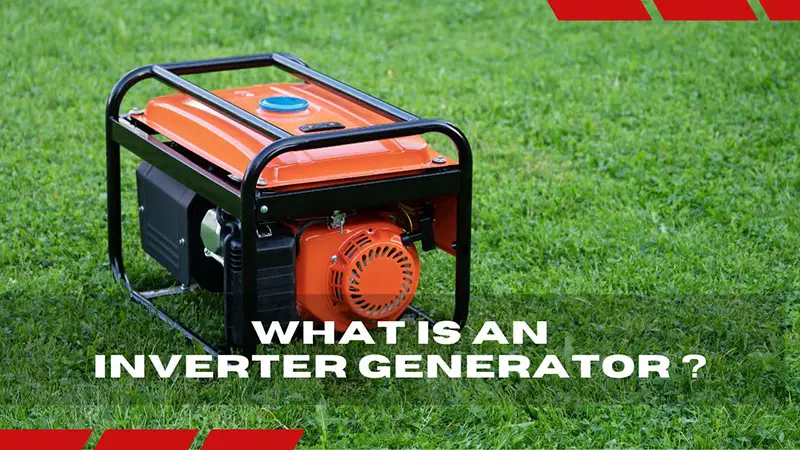

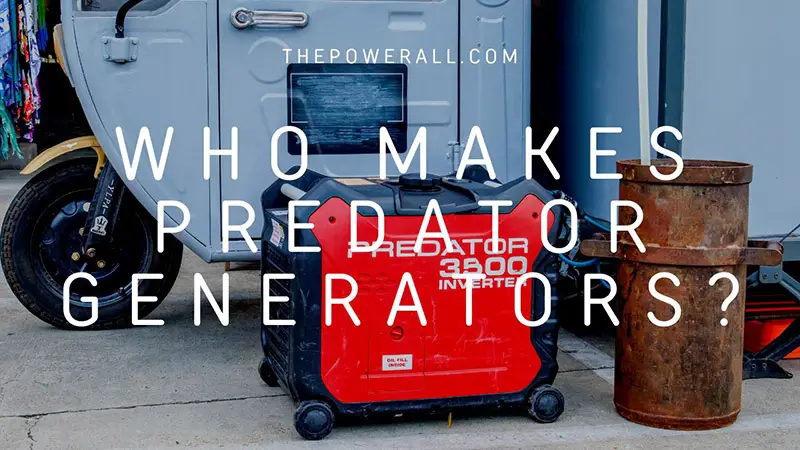
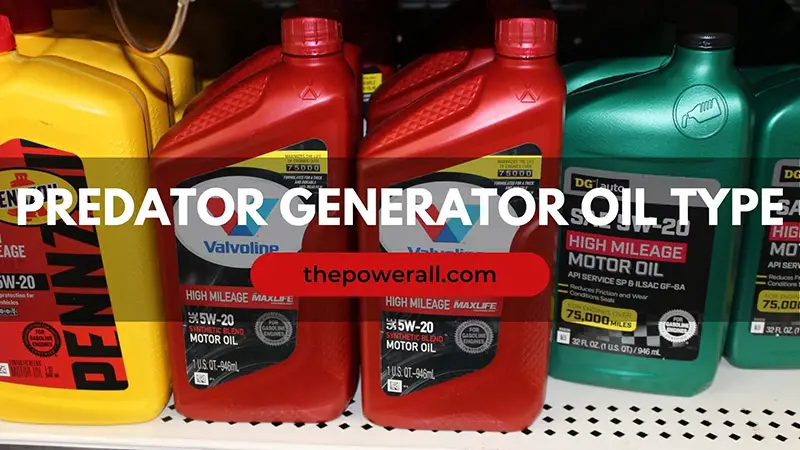

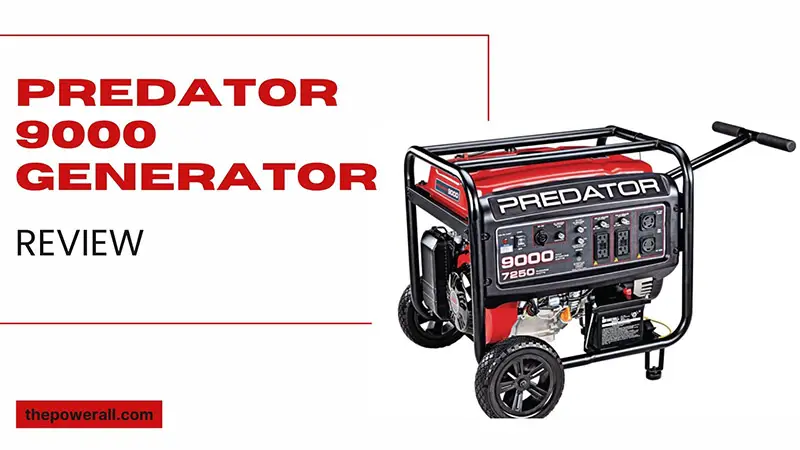
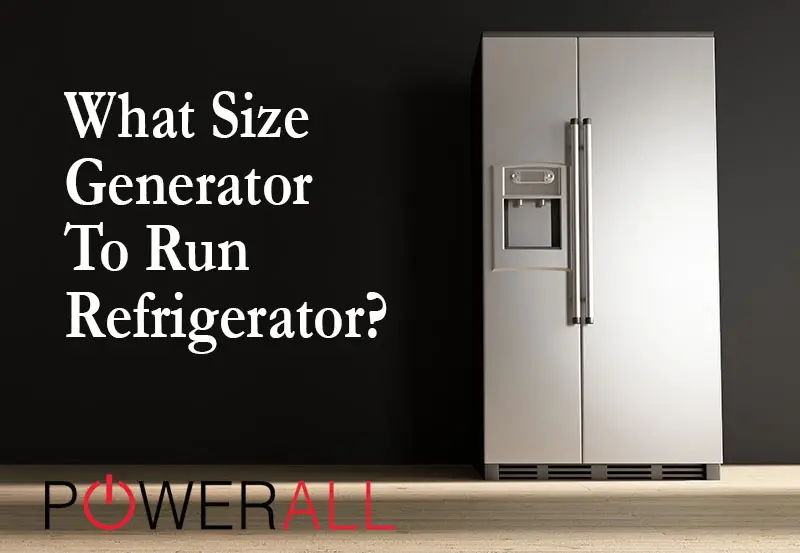
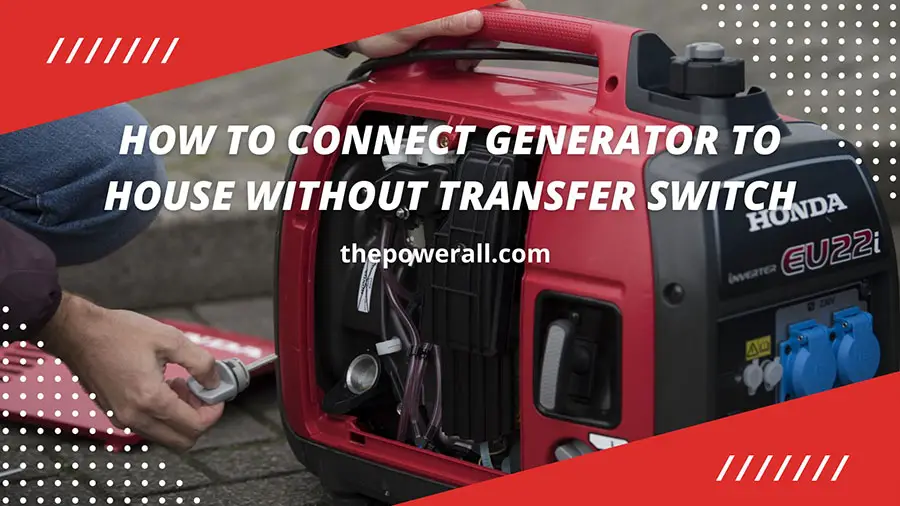
0 Comments